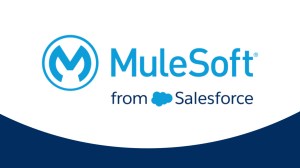81 Percent of Global Consumers Believe Organizations Provide a Disconnected Experience

<p>Consumer Connectivity Insights 2018 reveals over two-thirds (69 percent) of global consumers would consider changing their bank, retailer or insurance provider due to a disconnected experience</p><br />
SAN FRANCISCO – June 19, 2018 – MuleSoft, provider of the leading platform for building application networks, today released “Consumer Connectivity Insights 2018,” a survey of more than 8,000 consumers globally to analyze whether organizations are meeting customer expectations for a connected, personalized experience across industries and geographies. The report found that customer loyalty is at risk for organizations unable to provide seamless experiences across all channels and timely access to information.
Globally, more than four out of five (81 percent) consumers believe that organizations in at least one of the four sectors surveyed (banking, insurance, retail, government) provide a disconnected experience. Government services was seen as the worst performer (66 percent) while banks were the best performers. However, even in banking still more than half (55 percent) of consumers said they have been at the receiving end of disconnected experiences, highlighting more needs be done across industries to meet their expectations.
Customer Retention at Risk for Organizations That Fail to Provide Connected Experiences
As a result of disconnected experiences, more than two-thirds (69 percent) of global consumers would consider changing a service provider. Consumers were most likely to consider changing retailers (57 percent), closely followed by insurance providers (56 percent), and banks (51 percent). Younger consumers (18-34 years old) reported the least tolerance, with 76 percent saying a disconnected experience would make them consider changing a service provider.
“Technology has fueled an on-demand culture and created a world in which consumers expect connected experiences across all channels. Millennials especially are increasing the pressure on organizations to provide a connected experience, yet it is clear many organizations are still falling short. For example, nearly half of consumers say they gave up on an activity or request when information sharing with an organization was too difficult,” said Ross Mason, founder and vice president of product strategy, MuleSoft. “Organizations need to connect their systems, devices and data end-to-end in an application network to deliver a great customer experience. The rewards are potentially huge for those that succeed, as they’ll unlock new ways to increase customer acquisition, retention and spend.”
The Future Is Now – Amazon Go, Facebook Messenger and Chatbots Get the Thumbs Up From Consumers
The survey shows organizations are already struggling to provide a connected experience and the demands on IT will only continue to increase as consumers’ expectations of technology continue to evolve.
- 60 percent of global consumers said they would prefer to shop by having an Amazon Go experience (aka “just walk out shopping” whereby consumers can purchase goods in-store without using a cashier or checkout machine). The younger generation (18-34 year olds) were particularly keen on this concept, with 77 percent saying they would be in favor of shopping this way.
- Nearly two-thirds (65 percent) of global consumers would like to use popular messaging services such as WhatsApp, Viber, Facebook Messenger or iMessage to securely interact with organizations. Again, the number is even higher (78 percent) among 18-34 year olds.
One technology that organizations are starting to invest in is chatbots. According to Gartner, Inc., 25 percent of customer service operations will use virtual customer assistant or chatbot technology by 2020. However, Consumer Connectivity Insights 2018 revealed that there is still work to be done:
- While 43 percent of global consumers have engaged with a chatbot when contacting an organization over the last 12 months, only 38 percent of those who had used chatbots said their query had been completely resolved/answered.
- 19 percent said that the chatbot was unable to resolve or answer their query as it didn’t have access to the necessary information or systems.
- 26 percent were asked to call a customer service representative directly, and 14 percent said they were directed to a web form.
- 79 percent of global consumers think it will be beneficial for chatbots to become more intelligent through being connected to more systems and data.
- Nearly half (48 percent) of respondents cited 24/7 customer service as the biggest benefit of more intelligent chatbots, followed by not having to wait on the phone (46 percent) and having queries answered quicker (37 percent).
“Organizations need to find a way to meet current demands and future-proof their business at the same time,” added Mason. “For instance, we are only touching the tip of the iceberg when it comes to voice and chatbots. A truly great customer experience using chatbots will only be delivered once they are connected to more systems and have access to a greater range of data. Integration continues to be a challenge for many organizations, but an API-led approach will put them on the right path to innovate and create greater customer loyalty in the future.”
Research Methodology
This global survey was commissioned by MuleSoft and independently carried out by Opinium Research. The total sample size was 8,019 adults: UK (2,004 adults), US (2,002 adults), Germany (1,001 adults), Netherlands (1,002 adults), Australia (1,010 adults) and Singapore (1,000 adults). Demographic split 18-34 year-olds (2,282 adults), 35-54 year-old (3,029 adults) and 55+ years-old (2,708 adults). Fieldwork was undertaken online between 3-9 April 2018. The figures have been weighted and are representative of adult populations (aged 18+).
About MuleSoft, a Salesforce company
MuleSoft’s mission is to help organizations change and innovate faster by making it easy to connect the world’s applications, data and devices. With its API-led approach to connectivity, MuleSoft’s market-leading Anypoint Platform™ is enabling over 1,200 organizations in approximately 60 countries to build application networks. For more information, visit https://www.mulesoft.com.
MuleSoft is a registered trademark of MuleSoft, Inc. All other marks are those of respective owners.
About Salesforce
Salesforce helps organizations of any size become agentic enterprises - integrating humans, agents, apps, and data on a trusted, unified platform to unlock unprecedented growth and innovation.
Visit www.salesforce.com for more information.

